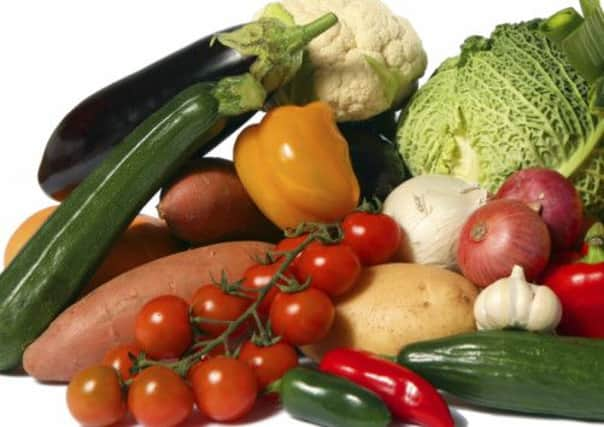Pay your farmers a fair price, group tells big stores


The campaign wants supermarkets to pay farmers a fair price for their produce by having supermarket pricing formulas take into account fluctuations in costs faced by producers – for fertiliser, diesel and animal feed.
Farmers’ businesses are vulnerable, with provisional Defra figures showing total income from UK farming down by 14 per cent (£737m) following the impact of a devastating year of erratic weather on harvests.
Advertisement
Hide AdAdvertisement
Hide AdThe CPRE wants stores to stock and promote more “countryside friendly” food and meet targets for at least 10 per cent of sales to derive from products supplied within a 30-mile area.
Ian Woodhurst, senior CPRE food and farming campaigner, said that given supermarkets’ “immense market power” they must support the nation’s farmers, as without it there would be dire consequences.
“More farmers will go out of business and the country’s abilities to provide enough food for people to eat will be lost,” he said.
The CPRE asked Tesco, Asda, Sainsbury’s, Morrisons, Marks & Spencer, The Co-operative and Waitrose to outline how they support farmers and the countryside, and supporters sent more than 7,000 emails to chief executives.
Advertisement
Hide AdAdvertisement
Hide AdWhile they found that praiseworthy environmental initiatives existed, too few of these support food producers, the charity claims. The CPRE invited each supermarket to respond but Waitrose was the only one to do so directly.
A fairer pay structure is crucial, Mr Woodhurst said, to avoid future food integrity scandals such as the recent contamination of food labelled as beef containing horsemeat.
A survey conducted by ICM Research in the wake of the scandal in February found that 66 per cent of people claimed they were less confident about what goes into their food.
The findings of another survey, published this month by grocery think-tank IGD, found that young people were increasingly demanding British food. Shoppers aged between 18 and 24 are now twice as likely (69 per cent) to buy British food than they were in 2007 (36 per cent).
Advertisement
Hide AdAdvertisement
Hide Ad“The horsemeat scandal has shown what can happen to the food chain if there is a race to the bottom on price,” Mr Woodhurst added. “The ‘Big 7’ need to take a more joined-up approach to farming, local food and our countryside so that consumers can buy high quality food, knowing that the farmer has been paid a fair price while maintaining the beauty of the English countryside.”
Andrew Opie, the British Retail Consortium’s director of food and sustainability, says retailers are already great supporters of local producers.
“Retailers source the vast majority of products like milk, butter, eggs, carrots, potatoes and beef here in the UK and our members give clear country of origin on both fresh meat and processed meat products so consumers can choose to buy British if that’s what they want,” he said.
“Farm prices are influenced by more than just retailers, as we have seen recently in wheat prices, but retailers pay a fair price to farmers and have pioneered supply chain agreements in milk and other areas. There are, of course, also support payments for farmers from the Common Agricultural Policy to ensure the maintenance of the countryside.”
Advertisement
Hide AdAdvertisement
Hide AdThe Government requires large retailers to deal fairly and lawfully with suppliers as part of the new Groceries Supply Code of Practice which comes into force tomorrow.
A Department for Business spokesperson said: “The Groceries Code Adjudicator (Christine Tacon) will make sure that large supermarkets abide by the Groceries Supply Code of Practice, and treat their suppliers fairly and lawfully. This will give suppliers the stability to help them grow, innovate and compete in the market.”